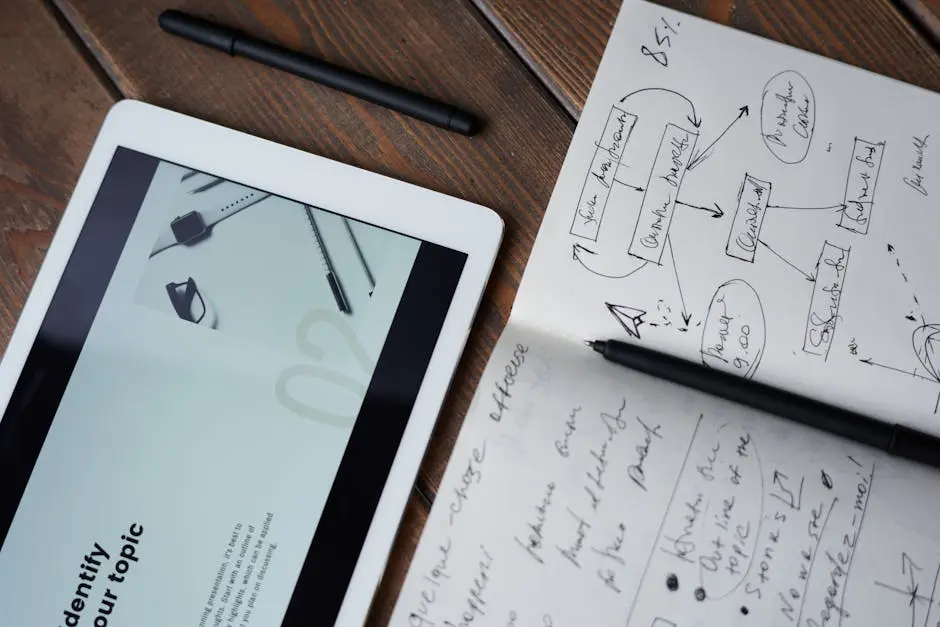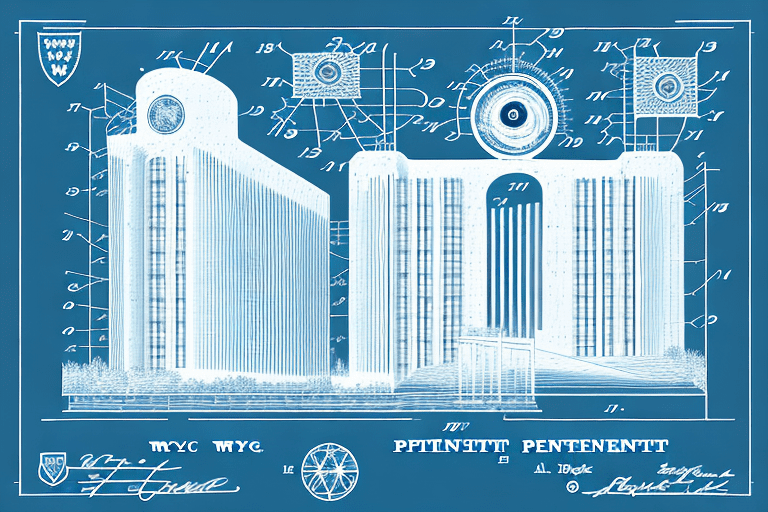Preparing for the Patent Bar can be daunting, and many test-takers unknowingly make mistakes that can hinder their success. In this blog, we’ll explore common pitfalls to avoid during your prep course, providing you with insights to help streamline your study process and boost your chances of passing on your first try.
1. Neglecting the Importance of a Study Schedule
Creating a study schedule is crucial to ensure that you cover all necessary material in a timely manner. Without a structured plan, it’s easy to fall behind. Think of your study schedule as a roadmap guiding you through the complex landscape of patent law. By breaking your preparation into manageable chunks, you’ll feel less overwhelmed and more focused on each individual section.
Moreover, a study schedule allows for flexibility. Life can throw unexpected challenges your way, and a pre-planned schedule gives you the opportunity to adapt without losing track of your goals. When you know what you need to study each day, you’ll find it easier to allocate your time effectively, minimizing the risk of cramming right before the exam.
2. Avoiding Practice Questions Until the End
Many students wait until the last minute to tackle practice questions, but integrating them throughout your study sessions helps reinforce concepts and enhances retention. Practice questions serve as essential tools that can illuminate your understanding of complex topics. They not only help you grasp the types of questions you might encounter but also build your confidence.
Consider this: when you practice during your studies, you’re essentially training your brain to recognize patterns and develop problem-solving skills. This proactive approach will keep the material fresh and provide immediate feedback on your understanding. By the time you reach the end of your preparation, you’ll be familiar with the exam format and ready to tackle it head-on.
3. Overlooking the Importance of Understanding Concepts
Focusing solely on memorization can lead to gaps in understanding. Strive to comprehend the underlying concepts and principles behind patent law. When you grasp these concepts, you not only prepare more thoroughly for the exam but also equip yourself with the knowledge necessary for a successful career in intellectual property.
Effective studying involves asking questions and seeking clarity on topics that seem abstract or challenging. Don’t hesitate to utilize resources like textbooks, online lectures, or discussion forums. Engaging with the material on a deeper level will make your study sessions more enriching and less of a chore.
4. Ignoring the Official USPTO Resources
The United States Patent and Trademark Office provides valuable resources and information. Ignoring these can leave you unprepared for the specific format of the exam. The USPTO offers practice exams, study guides, and other materials that are designed to help you succeed. Familiarizing yourself with these tools will give you insight into what the test is really like.
Additionally, the resources provided by the USPTO can offer context that is not found in commercial study materials. Often, these resources reflect current trends and changes in patent law, ensuring you’re studying the most relevant information. Keep in mind, being well-versed in official guidelines will boost your confidence and ability to tackle complex scenarios during the exam.
5. Not Utilizing Study Groups Effectively
Study groups can offer insights and accountability, but failing to use them wisely can lead to distractions or superficial discussions without depth. It’s essential to set clear objectives for each group meeting, so everyone is aligned and focused on productive discussions. The right group can become a powerful resource, providing different perspectives and clarifying difficult concepts.
However, if your study group often veers off-topic, you might find it unproductive. Make sure to reserve time for serious study, while still encouraging a friendly atmosphere. Balance is key—allow space for relaxation and conversation, but never lose sight of the ultimate goal: passing the Patent Bar.
6. Relying Too Heavily on a Single Study Resource
While having a primary textbook or guide is helpful, relying exclusively on one source can limit your exposure to different approaches and perspectives on the material. Diverse materials can enrich your understanding and provide various explanations for the same concept. By exploring multiple resources, you can find the explanations that resonate with you most.
Don’t hesitate to explore online lectures, forums, and different textbooks. This variety can make studying more engaging and less monotonous. It’s like cooking; using a variety of spices can transform a bland dish into something extraordinary. The same goes for studying; a mix of resources can enhance your knowledge and keep you motivated.
7. Skipping the Review of Past Exams
Reviewing past Patent Bar exams can provide insight into question formats and topics that frequently appear, helping you tailor your study efforts effectively. By familiarizing yourself with the types of questions that have been asked in the past, you’ll better understand the exam’s structure and what is expected of you.
Moreover, analyzing past questions can reveal patterns and highlight recurrent themes in patent law, allowing you to prioritize your study time effectively. You might discover that certain areas warrant more focus based on historical data, ultimately equipping you with targeted knowledge that can make a big difference on test day.
8. Underestimating the Complexity of the Exam
Some test takers may underestimate the difficulty of the Patent Bar exam. Being overly confident can lead to inadequate preparation and disappointment on exam day. Understanding the breadth of topics covered is key; this isn’t just about passing a test, it’s about ensuring you have the skills necessary to practice in a competitive field.
Take the time to thoroughly assess the curriculum. Make sure to grasp not only the fundamental concepts but also the practical applications of the law. Approach your studies with a sense of seriousness; this exam is a significant milestone in your career. Understanding its complexity will cultivate the seriousness and thoroughness you need in your study plan.
9. Failing to Take Breaks
Studying for extended periods without breaks can lead to burnout and decreased efficiency. Incorporate regular breaks to recharge your mind and body. Short pauses during study sessions not only refresh you but also enhance your retention.
Imagine studying intensely for hours only to find that your mind is fatigued, making it difficult to concentrate. Take a walk, indulge in a hobby, or even meditate briefly. These intervals can improve your focus and productivity, allowing you to return to your study materials feeling revitalized and ready to tackle the next topic.
10. Ignoring Personal Learning Styles
Each individual has a unique learning style, be it visual, auditory, or kinesthetic. Ignoring your preferences can make studying less effective and enjoyable. Recognizing how you best absorb information is crucial for optimizing your study strategy.
For instance, if you learn better through visuals, leverage diagrams and videos to comprehend difficult concepts. Alternatively, if you’re an auditory learner, consider listening to lectures or discussing topics with peers. Customizing your study approach in accordance with your learning style can greatly enhance your preparation experience.
11. Not Seeking Help When Needed
If you’re struggling with certain topics, don’t hesitate to ask for help. Reaching out to instructors or peers is essential for overcoming obstacles in your preparation. Too often, students become intimidated and try to figure everything out alone, which can lead to frustration.
Remember, asking for help isn’t a sign of weakness, but rather a sign of strength and determination to learn. Joining discussion groups or seeking mentorship can illuminate difficult concepts. The sooner you address your struggles, the more confident you will feel in your knowledge.
12. Neglecting Mental and Physical Health
Taking care of your physical and mental health is vital during your preparation. Neglecting self-care can lead to decreased focus and overall well-being. It’s easy to view studying for the Patent Bar as an all-consuming endeavor, but remember that a healthy mind and body facilitate better learning.
Incorporate regular exercise, balanced nutrition, and adequate sleep into your routine. These elements not only support cognitive function but also help manage stress levels. Practicing mindfulness or yoga can also be beneficial in maintaining mental clarity during your study period.
13. Failing to Simulate Exam Conditions
Not simulating actual exam conditions during practice can lead to uncertainty on test day. Create a practice environment that closely mimics the real exam. This means timing yourself, minimizing distractions, and replicating the test format as closely as possible.
By experiencing the pressure and constraints of the actual exam beforehand, you’ll reduce anxiety and increase your comfort level. This rehearsal allows you to identify areas where you may struggle and adjust your study tactics accordingly. Practicing under real exam conditions is a confidence booster that can pay off when it matters most.
14. Not Tracking Progress
Documenting your study progress can keep you motivated and help identify areas needing improvement. Regular self-assessment is key to effective preparation. Consider maintaining a study journal or spreadsheet where you log your completed topics and practice scores.
Having a visual representation of your growth not only reinforces your achievements but also highlights subjects that may require extra attention. This proactive approach allows you to strategize your study sessions more efficiently, continually refining your path toward success.
15. Giving Up Too Soon
Persistence is key in any challenging endeavor. If you find the material difficult, don’t give up prematurely; instead, seek additional resources and support. Many successful test-takers faced obstacles but pushed through by adapting their strategies.
Instead of feeling defeated when you encounter tough topics, use them as opportunities to learn and grow. Embrace the challenges, and remember that overcoming them will only make your understanding stronger. Your tenacity in overcoming difficult material will make a significant difference not just for the exam, but throughout your entire career.











